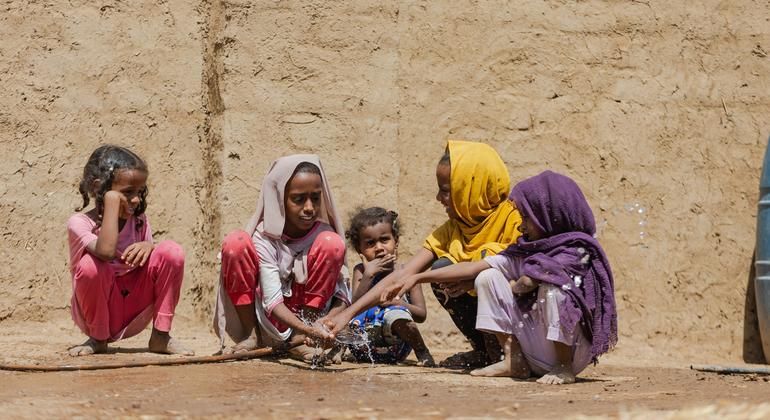The UN health agency insisted that the humanitarian, economic, social and political crises that began with a brutal civil conflict in 2013 have been worsened by the recent influx of refugees from Sudan following the war between rival armies there, with More than 650,000 new arrivals since April 2023.
Currently, nearly six million people (46 percent of the population) face critical levels of food insecurity, a figure that is expected to rise to around 7.1 million during the current lean season.
El Niño and floods
The WHO report also highlighted that the 2023-24 El Niño weather phenomenon, one of the strongest on record, brought dry conditions, erratic rainfall and significantly affected crops.
It also caused flooding throughout the year, which occurred in new areas that were previously unaffected.
Severe flooding, recurrent violence, weak governance, poverty and a lack of infrastructure have created a complex humanitarian crisis that is hampering South Sudan's development, the UN health agency has warned.
A staggering 8.9 million people, mostly in flood- and conflict-affected areas, have been affected.and women, children, the elderly and people with disabilities are most at risk.
UNHCR's First Forced Displacement Survey (FDS)
A pilot household survey conducted on Monday by the UN refugee agency (UNHCR) further underlines the dire conditions and reveals alarming levels of suffering among refugee and host communities.
The Forced Displacement Survey was conducted between April and December 2023 and covered around 3,100 households in South Sudan.
All communities were found to face many challenges, including limited services, high unemployment, lack of education, poor infrastructure and overcrowded shelters.
74 percent of households are hungry
Food is a major problem. 74 percent of refugee households and host communities suffer from hunger in the last month.
AND More than 40 percent of both groups had lower income than the previous year.Refugees from the Sudanese crisis have contributed to aggravating the situation in already unstable areas and already overstretched services. The conflict has also affected South Sudan's economy by shutting down the main oil pipeline.
Marie-Helene Verney, UNHCR Representative in South Sudan, said: “We need to link humanitarian assistance to stabilization and development programmes as much as possible…Substantial long-term investments are crucial “to improve the well-being of refugees and their host communities.”
South Sudan has more than 460,000 refugees from Sudan, the Democratic Republic of Congo and Ethiopia.
With the conflict in Sudan, South Sudan receives 1,600 people daily including refugees and returnees. The FDS provides comprehensive socio-economic data on refugees and host communities to inform programming and policy-making. This data is critical to targeting assistance where it matters most and bridging the gap between humanitarian aid and development.












